If you've spent the time installing or restoring a driveway, you know that it is a lot of work but with a satisfying result. Many people choose to seal their driveway to make their work last longer. If you choose to seal your driveway, you may be wondering how often you need to re-seal it. We have done the research to bring you this answer.
It is generally recommended to re-seal your driveway every five years. However, this recommendation may vary depending on the surface of your driveway. Here are the recommendations for the most common driveway surfaces:
- Concrete: 5 years
- Asphalt: 3 years
- Basalt: 2-3 years
- Pavers: 3 years
- Brick: 3-5 years
We invite you to continue reading to learn why different surfaces have different recommended timeframes. We will also explain what you should look for to know that it is time to re-seal your driveway.
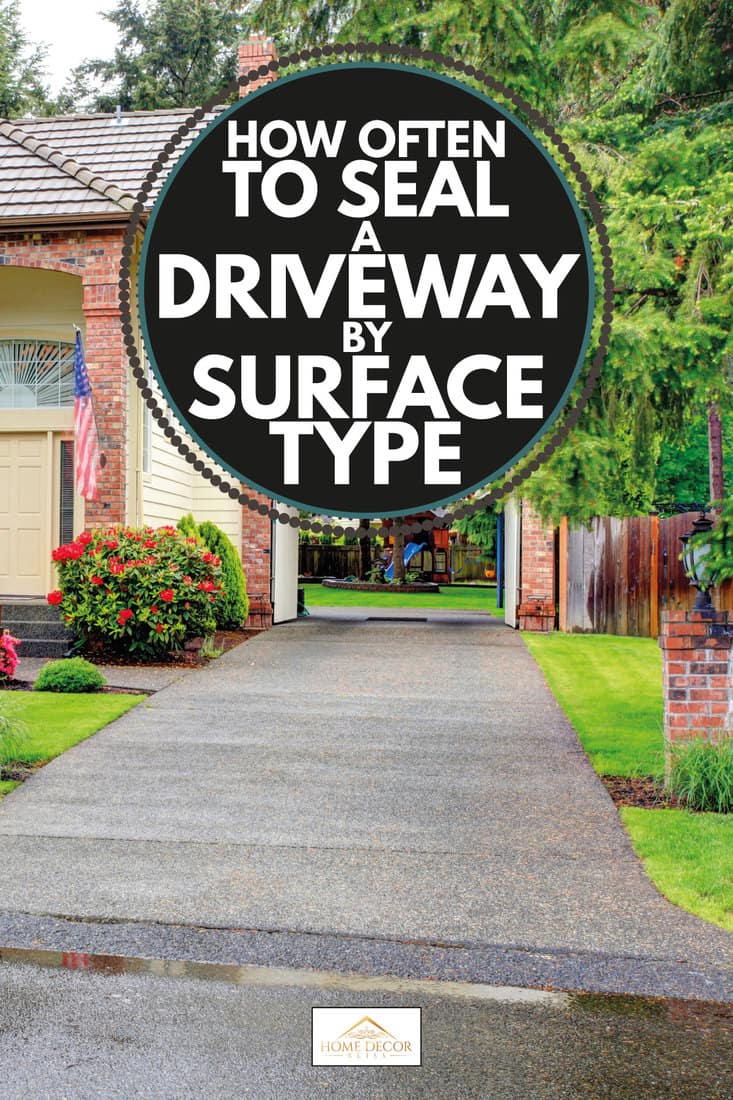
Recommendations By Surface Type
Each driveway surface is unique in signs of wear and tear and how often it should be resealed. Regardless of the driveway surface you have, it is recommended to seal your driveway when you have a few days of warm, dry weather. Sealing your driveway when it is rainy or damp will prevent your sealer from drying properly and potentially ruin the driveway's finish.
Concrete
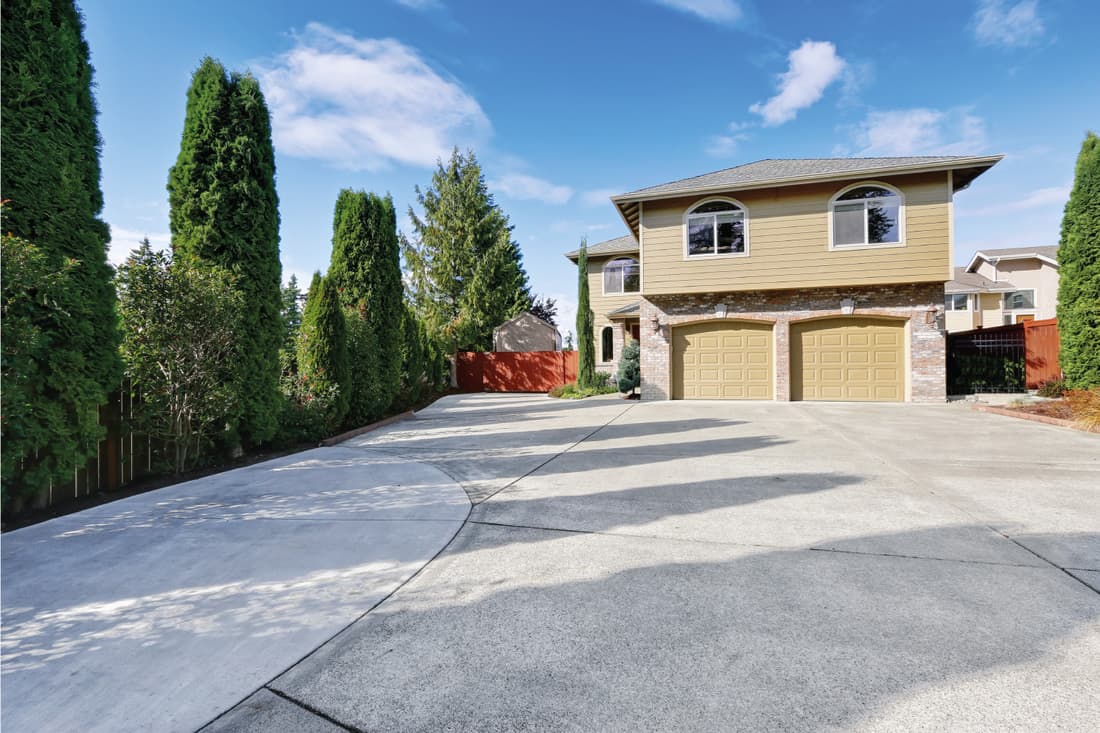
We sometimes add affiliate links and content that was curated and created by our team with the help of advanced ai tools to help showcase the best design styles.
After your pour a concrete driveway, it is highly recommended to wait before sealing it. If you seal your driveway too soon, it will interfere with the curing process, and your driveway will not set properly. You can seal your concrete driveway for the first time, about a month after it has been poured.
How Often Should You Seal A Concrete Driveway?
Concrete driveways should be sealed every five years. You will know that it is time to reapply the sealant when your driveway begins to look worn. This could mean that your driveway looks dull, or it is starting to have small cracks.
Is Sealing Concrete Necessary?
If installed correctly, concrete can last quite a while without being sealed. However, it doesn't hurt to seal your concrete if you wish to. Sealing your concrete driveway will maintain its appearance longer and protect it from minor damage.
What Is The Longest Lasting Concrete Sealer?
Sealer made from epoxy or polyurethane lasts the longest when applied to the concrete. It can maintain your driveway's appearance for 5-10 years if applied correctly.
Click here to see this polyurethane sealer on Amazon.
Asphalt
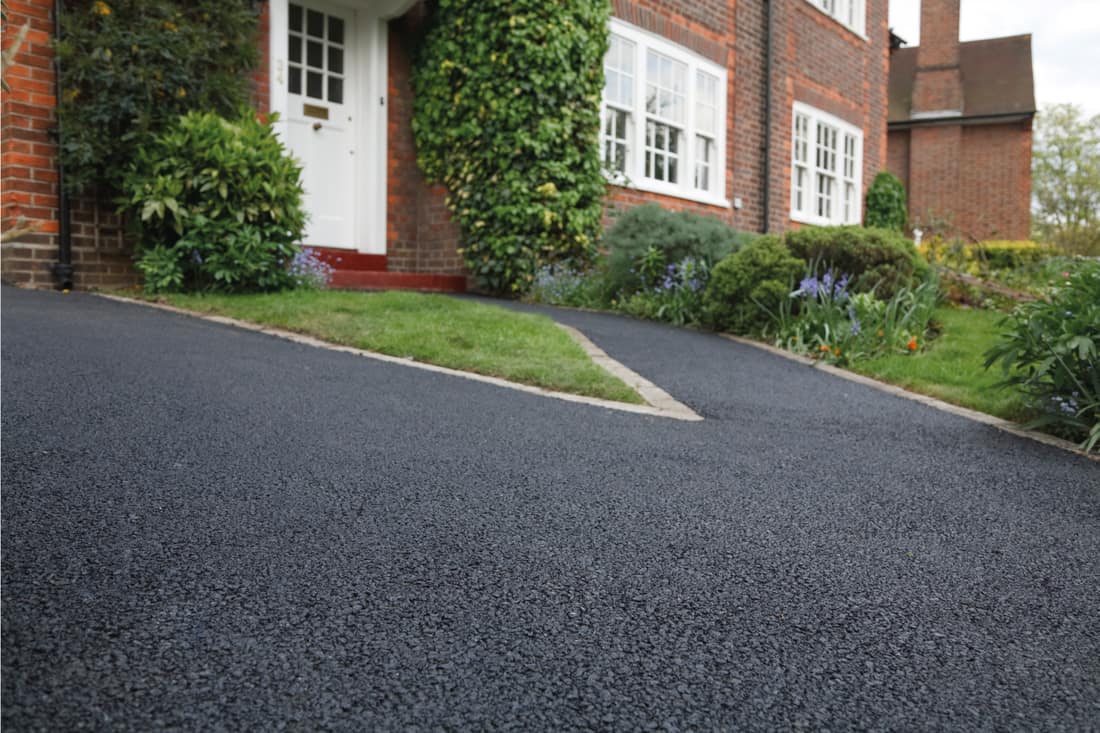
Like concrete driveways, new asphalt driveways need some time before they can be sealed. Unlike concrete, however, asphalt needs six months to cure and dry sufficiently. If you seal your driveway too soon, the asphalt will not have enough time to absorb the oils that will protect the asphalt's integrity.
How Often To Seal An Asphalt Driveway?
Asphalt driveways should be sealed every three years. When the sealant starts to wear off, you will begin to see the individual stones that make up the asphalt mixture. This is a sign that sealant should be applied again.
Does Sealing Asphalt Extend Life?
Applying sealer will extend the life of your asphalt driveway. This is because sealer protects asphalt from UV rays and liquids from vehicles or precipitation. It also fills in any minor surface damage, such as cracks, restoring your driveway's smooth surface.
Click here to see this asphalt sealer on Amazon.
Basalt
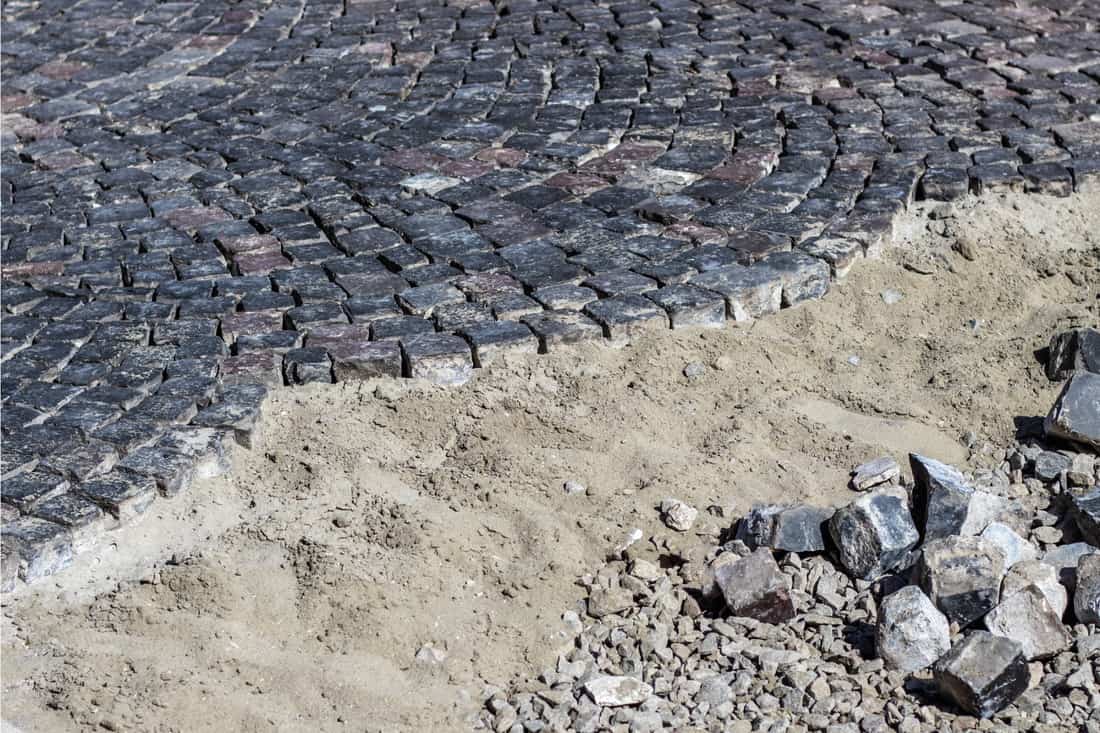
Basalt pavers should be sealed every 2-3 years to protect them from moisture that causes discoloration in basalt. Sometimes, the discoloration is significant enough that it is permanent. When you notice your basalt pavers becoming discolored when exposed to moisture, this is a sign that your sealant has worn off and needs to be reapplied.
There are two different types of sealers for natural stones, such as basalt. Topical sealants lay on top of the pavers to protect the surface from stains or damage. Penetrating sealants are absorbed into the stone. These sealants do not preserve the surface appearance of the stone but instead protect the stone from absorbing moisture.
Click here to see this penetrating sealer on Amazon.
Pavers

Driveway pavers can be made of different materials, from concrete to cobblestone, and should be sealed every three years. You will know that it is time to reseal your pavers when grass and weeds begin to push through between the pavers. Your pavers will also look dull when the sealer starts to wear off.
It is essential to thoroughly clean your pavers before applying a new coat of sealer. If you seal dirty pavers, a hazy layer will form between the paver and the sealer. If this occurs, the only way to fix it is to remove the sealer and start over.
Click here to see this paver sealer on Amazon.
If you are considering a paver driveway, read 21 Paver Driveway Ideas To Consider for inspiration.
Brick
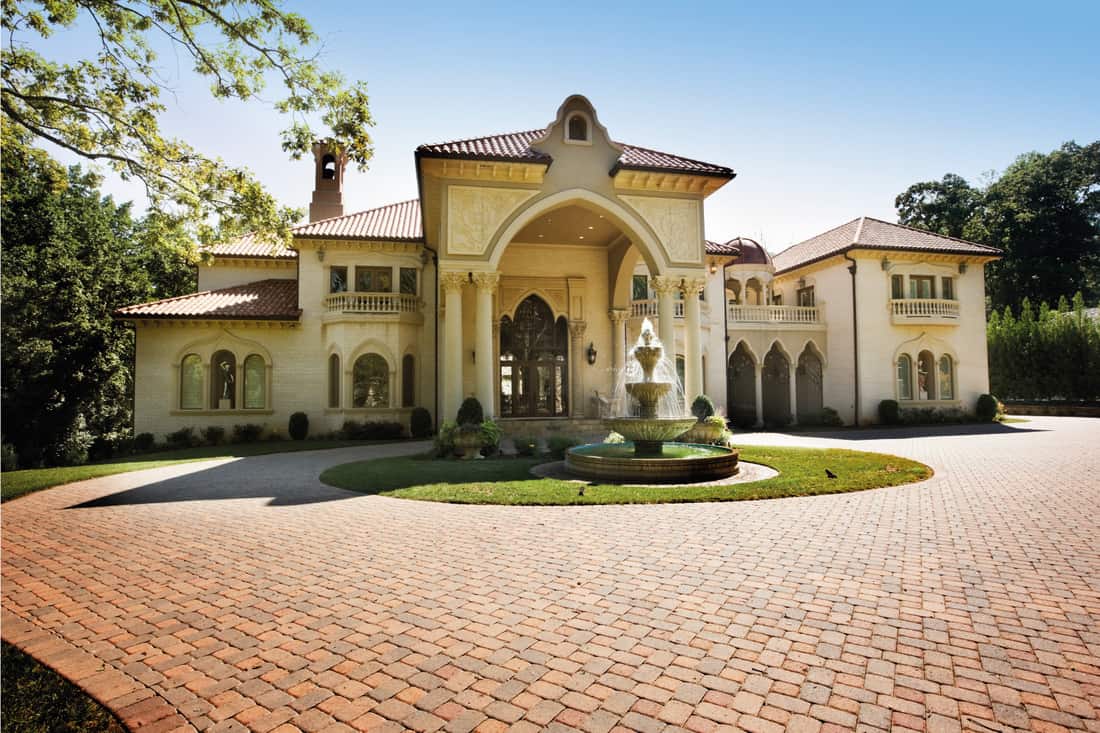
Bricks are similar to pavers in that they aren't poured like concrete or asphalt. However, there are some differences between them, and they need to be cared for differently. Bricks are made from clay and are typically lower maintenance than pavers. Still, brick driveways can benefit from the added protection of sealer.
Your brick driveway should be resealed every 3-5 years. You will be able to tell that your driveway's sealer is wearing off when your bricks become discolored when they are wet. Like driveways with pavers, grass and weeds will begin to grow between the bricks.
Sealers made from silane siloxane are recommended for bricks. The chemicals in these sealers react to the material in the bricks to form a protective barrier.
Click here to see this Silane Siloxane sealer on Amazon.
What Happens If You Don't Seal Your Driveway?
Some experts believe that sealing your drive is not necessary. Their view is that while a sealer can protect the surface of your drive and keep it looking newer for longer, it cannot prevent significant damage to the driveway, such as cracks. If you don't seal your driveway, you may notice that your driveway's new appearance will fade more quickly than if you had chosen to seal it.
Can You Seal Your Driveway Too Much?
Sealing your driveway too often will not only be expensive, but it can also be counterproductive. If you seal your driveway too much, buildup will occur, and the sealer will crack or break off.
Summary
Some experts will say that you don't need to seal your driveway, and they are correct. A well installed driveway can withstand the elements and last for a decent amount of time. However, sealing your drive preserves its appearance and protects its surface, making it last even longer. While re-sealing every five years is a rule of thumb, be sure to follow the recommendations that match your driveway's surface.





